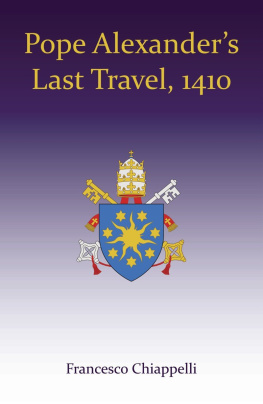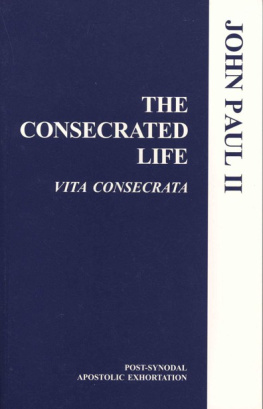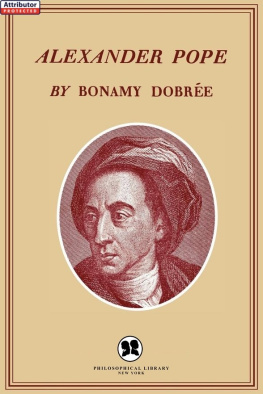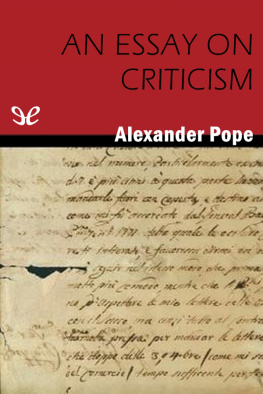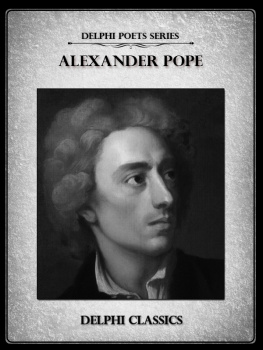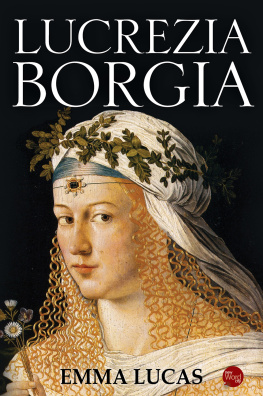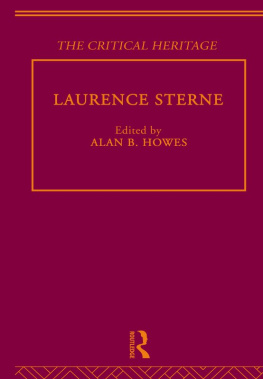Barnard John - Alexander Pope: the critical heritage
Here you can read online Barnard John - Alexander Pope: the critical heritage full text of the book (entire story) in english for free. Download pdf and epub, get meaning, cover and reviews about this ebook. City: London;New York, year: 2016;1995, publisher: Routledge, genre: Detective and thriller. Description of the work, (preface) as well as reviews are available. Best literature library LitArk.com created for fans of good reading and offers a wide selection of genres:
Romance novel
Science fiction
Adventure
Detective
Science
History
Home and family
Prose
Art
Politics
Computer
Non-fiction
Religion
Business
Children
Humor
Choose a favorite category and find really read worthwhile books. Enjoy immersion in the world of imagination, feel the emotions of the characters or learn something new for yourself, make an fascinating discovery.

- Book:Alexander Pope: the critical heritage
- Author:
- Publisher:Routledge
- Genre:
- Year:2016;1995
- City:London;New York
- Rating:4 / 5
- Favourites:Add to favourites
- Your mark:
- 80
- 1
- 2
- 3
- 4
- 5
Alexander Pope: the critical heritage: summary, description and annotation
We offer to read an annotation, description, summary or preface (depends on what the author of the book "Alexander Pope: the critical heritage" wrote himself). If you haven't found the necessary information about the book — write in the comments, we will try to find it.
Alexander Pope: the critical heritage — read online for free the complete book (whole text) full work
Below is the text of the book, divided by pages. System saving the place of the last page read, allows you to conveniently read the book "Alexander Pope: the critical heritage" online for free, without having to search again every time where you left off. Put a bookmark, and you can go to the page where you finished reading at any time.
Font size:
Interval:
Bookmark:
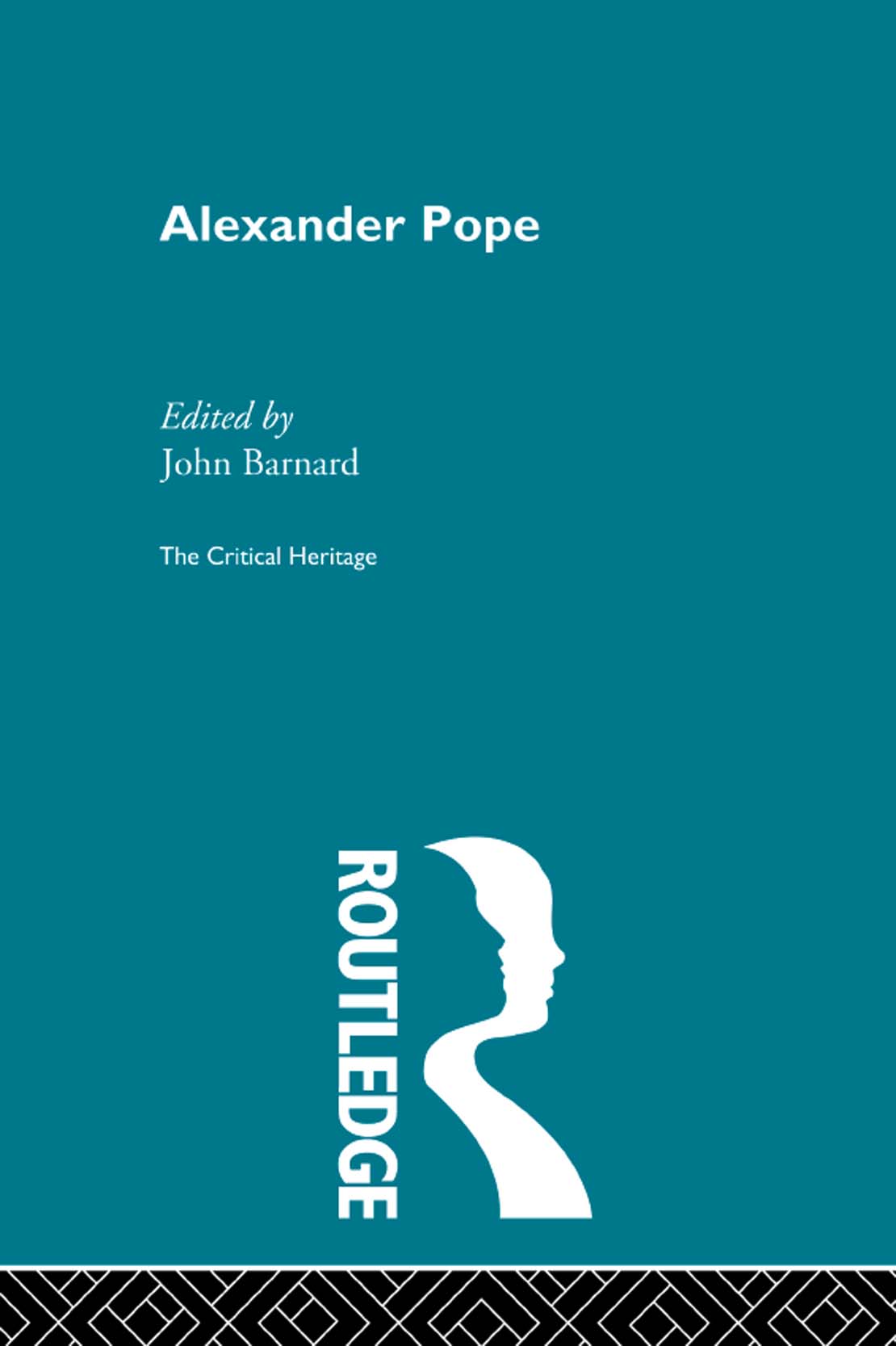
ALEXANDER POPE: THE CRITICAL HERITAGE
THE CRITICAL HERITAGE SERIES
General Editor: B. C. Southam
The Critical Heritage series collects together a large body of criticism on major figures in literature. Each volume presents the contemporary responses to a particular writer, enabling the student to follow the formation of critical attitudes to the writer's work and its place within a literary tradition.
The carefully selected sources range from landmark essays in the history of criticism to fragments of contemporary opinion and little published documentary material, such as letters and diaries.
Significant pieces of criticism from later periods are also included in order to demonstrate fluctuations in reputation following the writer's death.
THE CRITICAL HERITAGE
Edited by
JOHN BARNARD

First Published in 1973
Reprinted in 1995 by Routledge
2 Park Square, Milton Park,
Abingdon, Oxon, OX14 4RN
&
270 Madison Ave,
New York NY 10016
Transferred to Digital Printing 2009
Routledge is an imprint of the Taylor & Francis Group
Compilation, introduction, notes and index 1973 John Barnard
All rights reserved. No part of this book may be reprinted or reproduced or utilized in any form or by any electronic, mechanical, or other means, now known or hereafter invented, including photocopying and recording, or in any information storage or retrieval system, without permission in writing from the publishers.
British Library Cataloguing in Publication Data
ISBN10: 0415134323 (hbk)
ISBN10: 0415568919 (pbk)
ISBN13: 9780415134323 (hbk)
ISBN13: 9780415568913 (pbk)
ISBN 0415134285 (set)
Publisher's Note
The publisher has gone to great lengths to ensure the quality of this reprint but points out that some imperfections in the original may be apparent.
The reception given to a writer by his contemporaries and near-contemporaries is evidence of considerable value to the student of literature. On one side we learn a great deal about the state of criticism at large and in particular about the development of critical attitudes towards a single writer; at the same time, through private comments in letters, journals, or marginalia, we gain an insight upon the tastes and literary thought of individual readers of the period. Evidence of this kind helps us to understand the writer's historical situation, the nature of his immediate reading-public, and his response to these pressures.
The separate volumes in the Critical Heritage Series present a record of this early criticism. Clearly, for many of the highly productive and lengthily reviewed nineteenth- and twentieth-century writers, there exists an enormous body of material; and in these cases the volume editors have made a selection of the most important views, significant for their intrinsic critical worth or for their representative qualityperhaps even registering incomprehension!
For earlier writers, notably pre-eighteenth century, the materials are much scarcer and the historical period has been extended, sometimes far beyond the writer's lifetime, in order to show the inception and growth of critical views which were initially slow to appear.
In each volume the documents are headed by an Introduction, discussing the material assembled and relating the early stages of the author's reception to what we have come to identify as the critical tradition. The volumes will make available much material which would otherwise be difficult of access and it is hoped that the modern reader will be thereby helped towards an informed understanding of the ways in which literature has been read and judged.
B.C.S.
Like all recent work on Pope, this volume owes a profound debt to George Sherburn and the editors of the Twickenham Pope, without whose foundations the work would hardly have been possible. James M. Osborn's definitive edition of Spence has been a constant source of information, and J. V. Guerinot's Pamphlet Attacks on Pope provided a very valuable account of the Dunces vociferous ridicule.
I would like to thank Mr David Berry for his help in checking the French translations, Dr T. Benn for information about the French translations, Dr B. Moloney for references to Pope's Italian reputation, Mr D. V. Reidy for translating the Italian passages, Professor Christopher Ricks for his early advice, and Dr E. T. Webb for his help with the Latin and Greek references. I am very grateful for the generous assistance given me by the staffs of the Bodleian Library and the British Museum, and for the kindness shown by Mr David Masson of the Brotherton Library, University of Leeds, and Mr Robert Kenedy of the Victoria & Albert Museum. Finally, I would like to thank Miss Audrey Stead of the School of English, University of Leeds, for her invaluable help with the typescript.
The following abbreviations are used throughout:
Corresp.: The Correspondence of Alexander Pope, ed. G. Sherburn (Oxford, 1956).
Dennis, Critical Works: The Critical Works of John Dennis, ed. E. N. Hooker (Baltimore, 193943).
PMLA: Publications of the Modern Language Association of America.
Spence, Anecdotes: Spence, Joseph, Observations, Anecdotes and Characters of Books and Men, ed. James M. Osborn (Oxford, 1966).
Twickenham: The Twickenham Edition of the Poems of Alexander Pope (London and New Haven, 193969). For full details, see the bibliography.
Critics of Pope's work have always found it difficult to separate the man from the poet. It is a confusion most apparent in Pope's lifetime. His critics, like his own satires, were dominated by the Augustan interest in personality. In England, the often hectic interest in Pope's character and writings was fed by a rapid accumulation of pamphlets and other trivia. Well over two hundred separate pamphlets for and against Pope were published between 1711 and 1744, the year of his death. To these publications must be added the frequent outbreaks of journalistic warfare, as well as a multiplicity of comments in letters and diaries. On the Continent, a stream of translations quickly spread Pope's fame, creating further detractors and supporters, who made their own substantial addition to eighteenth-century criticism of Pope.
The great difficulty in selecting from this mass of material was to balance the conflicting demands of criticism, literary history, and biography. Most of Pope's contemporaries were too close to their subject to see the larger issues clearly, if they could see them at all, and most of them are of little critical stature. In choosing passages from criticism written in Pope's lifetime, I have attempted to show its effect upon Pope's development as well as the critical positions taken. Much of this ephemeral material is now hard to come by, even with the publication of J. V. Guerinot's Pamphlet Attacks on Alexander Pope 17111744 (1969). Consequently, Pope's own comments on poetry, though throwing more light on his work than any other contemporary critic, have been largely omitted since they are easily available.
A few pamphlets and poems from both sides are given in their entirety, but most of the documents are extracted from larger works. Private letters and informal comments are an important subsidiary source of information. Substantial passages are taken from John Dennis's frequently shrewd but always one-sided attacks, and from Joseph Spence's sympathetic critique of
Font size:
Interval:
Bookmark:
Similar books «Alexander Pope: the critical heritage»
Look at similar books to Alexander Pope: the critical heritage. We have selected literature similar in name and meaning in the hope of providing readers with more options to find new, interesting, not yet read works.
Discussion, reviews of the book Alexander Pope: the critical heritage and just readers' own opinions. Leave your comments, write what you think about the work, its meaning or the main characters. Specify what exactly you liked and what you didn't like, and why you think so.

